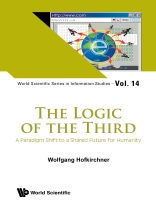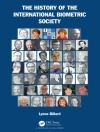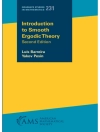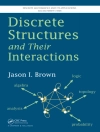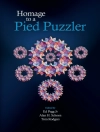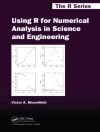This book is a scientific basis for understanding the urgent need for a Great Transformation to a third step in social evolution. Already being a community of common destiny, humanity can form an actual unity through diversity to avoid extinction. Social actors can recognise informational imperatives for cognition, communication and co-operation to achieve such a unity. By doing so, they apply a logic that underlies the structuration of any agency, which is a real logic of self-organising systems from the physical to the social. This logic is the Logic of the Third — the Third is a meta-structure that emerges in a leap. The agents interact and when they co-act they are likely to form a real meta-structure of organisational relations. Informational agents anticipate this by generating requisite information in their attempt to cope with complex challenges. Such an information is a meta-structure too. The Third helps achieve synergy effects.
This book discusses considerations from philosophy, systems theory, the study of information, social systems, social information, ecology and technology. It addresses ethical issues connected with the long-forgotten arms race in an atomic age, the global warming not yet under control, the pandemic misunderstood, the social question still unanswered.
Contents:
- Towards a Science of Transformation:
- Revisiting the World, Systems and Information
- Steps to a Theory of the Social and of Social Information:
- From Systemism and Information to Criticism
- From Criticism to Critical Utopia
- Towards a Science for, about, and via the Techno-Eco-Social Transformtion:
- From Critical Utopia to Visioneering. Rethinking Future Information Technology: Emergentist Techno-Social Systemism
Readership: Advanced undergraduates, graduates, researchers.
’This book is an essential contribution to the reform in thinking needed to face the complexity of our troubled times and the uncertainties of our future.’ – Edgar Morin Centre national de la recherche scientifique (CNRS)École des hautes études en sciences sociales (EHESS)
’Wolfgang Hofkirchner’s new book, a direct continuation of his 2013 Emergent Information, is a major contribution to breaking down the still almost impermeable boundaries between disciplines. It encourages one to think in terms of meta-levels of reality, objective and scientific as well as subjective and ideational. It encourages us further to seek out the unity-in-diversity in the meta-system transitions in all real processes that instantiate the Third. The Logic of the Third, in my view, could well become the most important new document at the intersection of science, philosophy and sociology of the 21st Century.’ – Joseph E Brennerauthor of Logic in Reality (Springer 2008) and co-author of Philosophy in Reality
’The world, science and technology are undergoing drastic changes and thus need innovative thoughts. The author of the book tells a truth — humans urgently need a paradigm shift that enables them to construct a harmonious human society for the future on the path of ’unity through diversity’. This is named ’The Logic of the Third’ by the author. I hope that the book be distributed as wide as possible. The more readers the book has, the better.’ – Professor Yixin Zhong AI School, Beijing University of Post and Telecommunications
’We are in an era of rapid transformation with both great hope and great crisis. How to avoid the crisis, and how to make the good hope come true? In this book, Wolfgang Hofkirchner puts forward the great prospect of a third transformation of the human developmental mode. This prospect is of great realism and innovation, which deserves attentions of politicians, philosophers and scientists. As far as the current situation is concerned, neither the existing Eastern social system nor the existing Western social system can become a ready-made system model that can reasonably adapt to the new social transformation. It is necessary to establish a new system of society labeled with the spirit of ’born with the right of sharing’. The pioneering work of Hofkirchner makes a good start. Let’s elaborate his work theoretically and practically to lead mankind into a new era.’ – Professor Kun Wu International Center for Philosophy of Information, Xi’an Jiaotong University
’This book is indispensable for all those who would like to stay informed about the recent developments in social systems following the Salzburg-Vienna approach. Both illustrative and illuminating, it is not only a survey concerning insight gained during the last twenty years, but also an inspiration for future research and thus a worthy sequel to the earlier book Emergent Information’ – Professor Rainer E Zimmermann Institute of Design Science Munich, and Clare Hall, Cambridge
’During the last 30 years the information revolution has generated unparalleled changes in science, technology and society. As has happened in previous historical revolutions, our social praxis has not advanced the conceptual tools needed to make sense of the ongoing transformations and social problems involved. This book is about that absence. It attempts a new synthesis with strong foundations in the philosophical, the ethical, the systemic and the eco-social — always within a critical perspective. Could we achieve a ’Global Sustainable Information Society’? In the present dramatic circumstances, that proposal becomes a Transformative Imperative for a shared humanity.’ – Pedro C Marijuán Grupo de Bioinformación, Instituto Aragonés de Ciencias de la Salud, Zaragoza, and Foundations of Information Science (FIS)
’This book provides an amazing outlook on the ongoing transformation of the world into a global sustainable information society. A skillful tool for understanding this great transformation is an integrative scientific approach that makes it possible to unite both the objective features of different hierarchical levels of self-organizing complex systems and knowledge elements in the complex entanglement of subjective and objective in them. A thorough analysis of self-organization phenomena leads the author to his own understanding of the imperatives of a solidary planetary ethics, which corresponds to the best traditions of thought by Vladimir Vernadsky, Mario Bunge, and Edgar Morin.’ – Professor Helena Knyazeva School of Philosophy and Cultural Studies, Faculty of Humanities, National Research University Higher School of Economics, Moscow
’In an era characterised by the destabilisation of familiar structures in almost all realms of being, Wolfgang Hofkirchner neither shows us a way of repairing these structures, nor does he offer a design of a bright future. Instead, faithful to the principles of emergentism, systemism and informationism, he has chosen to invest his efforts in the design of an epistemic structure that can evoke and scaffold the emergence of a desirable system out of the dynamics of ontogenesis. In this book, he presents an elaborate theoretical framework meant to facilitate the simultaneous transformation of the society, ecology and technology from the present state of rapid decline to a ’Global Sustainable Information Society’. Woven from notions and methods that have been meticulously harvested from the most notable currents of thought of the 20th century, and adopted so as to address the needs and challenges of the future social system, the framework provides a valuable guideline for all who want to be part of ’the next step in social evolution’.’ – Professor Yagmur Denizhan Electrical and Electronics Engineering Department, Graduate Program in Systems and Control Engineering, Bogazici University
’This book contributes a variety of Pro’s: It is pro-vocative, as it re-draws our attention to information from another system perspective. It is pro-pulsive, since it addresses us even-handedly as individuals and community. It features pro-activeness by opening up socio-pragmatic development spaces. Each of these drivers could entangle digital transformation towards digital humanism.’ – Professor Christian Stary Institute of Business Informatics — Communications Engineering, Johannes Kepler University Linz
’As always Wolfgang Hofkirchner provides us with a stimulating analysis of how to deal with the information explosion that has overwhelmed us with its complexity in a straight forward and direct manner. Building on this analysis he creates a road map to insure a safe passage into our as yet unknown future. He organizes the way that political leaders and industrialists should and hopefully will deal with information.’ – Professor Robert K Logan Department of Physics, University of Toronto, University of St Michael’s College, and Ontario College of Art and Design, Toronto
’Wolfgang Hofkirchner’s new book, a direct continuation of his 2013 Emergent Information, is a major contribution to breaking down the still almost impermeable boundaries between disciplines. It encourages one to think in terms of meta-levels of reality, objective and scientific as well as subjective and ideational. It encourages us further to seek out the unity-in-diversity in the meta-system transitions in all real processes that instantiate the Third. The Logic of the Third, in my view, could well become the most important new document at the intersection of science, philosophy and sociology of the 21st Century.’ – Joseph E Brennerauthor of Logic in Reality (Springer 2008) and co-author (with Abir U. Igamberdiev) of Philosophy in Reality (Springer 2020)
’In our age of information overload, only few works offer a systematic analysis of a rapidly changing, unstable reality under the influence of new technologies. Wolfgang Hofkirchner’s monograph ’The Logic of the Third’ adds a new dimension to the interdisciplinary approach to a modern philosophy of science by integrating the natural-scientific, technical and socio-humanitarian perspectives of a world vision. This raises interested readers to the meta-level to recognize the prospects, opportunities and risks of our technogenic civilization.’ – Professor Irina Aseeva Centre for Academic Research and Informational Studies on Science, Education and Technologies of the Institute of Scientific Information for Social Sciences of the Russian Academy of Sciences (INION RAN), Moscow
Key Features:
- The book provides an intelligible, panoptic and concise introduction to the new paradigm. Every thematic unit concludes with a methodological principle that shall guide further investigations by an emerging science of transformation
- Arguments follow an easy-to-grasp scheme and are illustrated by more than 100 tables and figures
